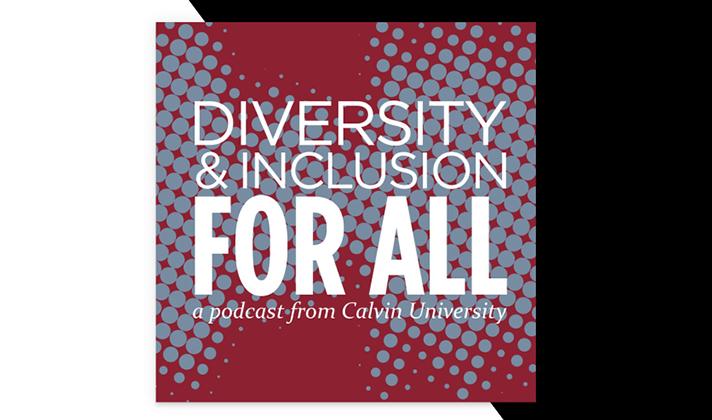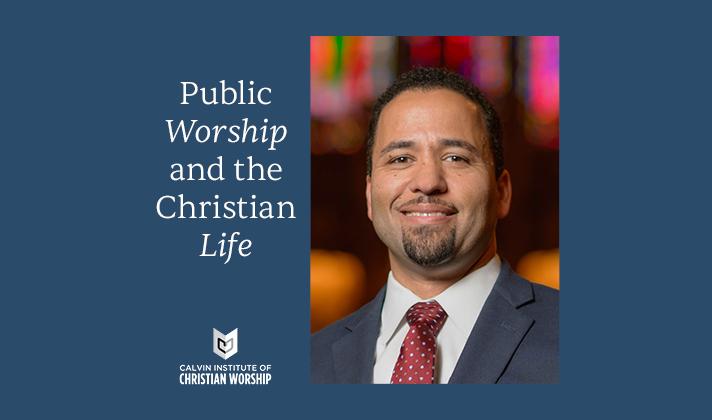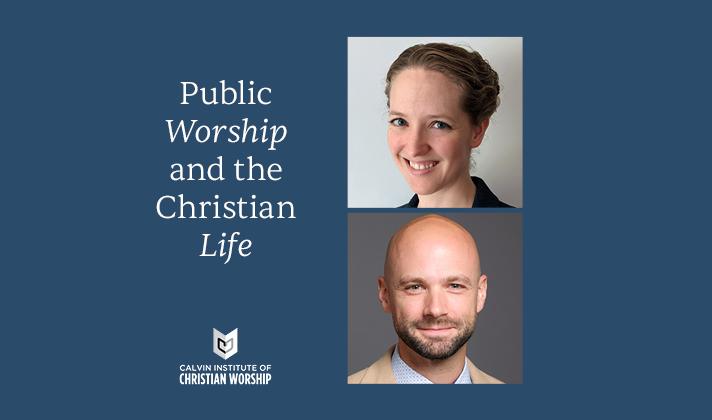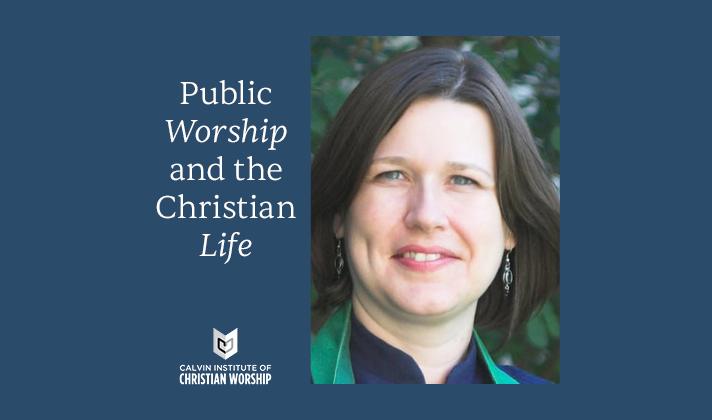Katie Ritsema-Roelofs 00:07
There's something to be said for fostering a community of all ages. And that's been something that's been really important and has changed the calculus for the ways that we've thought about the importance of all ages in worship.
Kristen Verhulst 00:28
I'm Kristen Verhulst, your host of this episode of Public Worship and the Christian Life, a podcast by the Calvin Institute of Christian Worship. Find us at worship.calvin.edu.
Katie Ritsema-Roelofs, thanks so much for joining me today on the podcast. So glad to have you here.
Katie Ritsema-Roelofs 00:57
Thanks, Kristen. I'm glad to be here with you. Thanks for the opportunity.
Kristen Verhulst 01:00
Katie is a commissioned pastor in the Christian Reformed Church in North America and serves as a content specialist with the Office of Worship Ministries. And she's also associate editor for the quarterly magazine Reformed Worship. Katie shares that she has been a lifelong musician who has been passionate about church music and worship since childhood. That led her to degrees in music and worship, seminary studies, and now her full-time ministry work in several different contexts. So Katie, I wonder if we could start with hearing a little bit about your calling story. What brought you into this place now, even though you mentioned earlier a love for music as a child?
Katie Ritsema-Roelofs 01:48
So when I write in my bio that I am a lifelong church musician, my mother will be able to verify for you that that is the truth. If you were to ask her, I was born a church musician. I grew up in a really musical family with an older brother and an older sister who were in chorus and who were in violin and piano lessons. And my mom will recount that I started banging my spoon on the high chair—in time, mind you—as a baby. And she knew then that there was some kind of musical gift there to harness. But I grew up in a musical household, and I grew up in a church music household, which was really formative in my early years, that I don't ever remember a moment where I wasn't deeply involved in the hearing of church music and church liturgy on a weekly if not daily basis. And that led to an early love of both church and music. I started music lessons at a young age and started church music lessons at a young age, which led to a degree in college and in seminary studies and now ministry contexts. I just wrapped up 16 years of service as the minister of music and worship at the Washington, D.C. Christian Reformed Church.
Kristen Verhulst 03:05
Congratulations, wow!
Katie Ritsema-Roelofs 03:07
Thank you for that! I can count them by the number of Advents—sixteen Advents at a church, or sixteen Lents. But I've just wrapped up that position and stepped out of the local ministry context and into a broader context serving churches and supporting other worship leaders in that weekly work and in those weekly roles.
Kristen Verhulst 03:27
Tell us a little bit more about that. What kinds of questions are churches asking you and maybe especially around this area of church music or participation by the full congregation—intergenerational questions?
Katie Ritsema-Roelofs 03:41
It's interesting, Kristen—this is a question that a lot of churches are asking, and it's one that started pre-COVID, but I think COVID has escalated that conversation. I think for a while people have realized that there's a growing disconnect and a growing divide of ages in worship. I had an interesting conversation with a couple of college chaplains, and they opened my eyes to something that I don't think I quite realized until talking with them: that they're receiving college-aged students who have never sat in a pew, who have never actually participated in corporate worship with a congregation of all ages. Our churches have done so well in educating children in the gospel and in faith and growing their faith tradition. But we've done it essentially outside of the sanctuary—in age-appropriate ways that have that have formed their faith and have helped them to be able to grow, but they've missed the entire corporate worship experience, starting in nursery as babies and a children's worship education program in their elementary school years and youth group in middle school and high school, so by the time kids are going off to college, they've never actually sat through adult worship services, or what we'll call adult worship services. And that was eye-opening to see that there has been an intentionality in this divide, whether or not we have wanted it to be there, whether or not we have realized that it's happened. And then COVID hit, and churches closed down to in-person worship, and many went virtual. Families were worshiping at home on their couches, in their living rooms, and all ages were worshiping together again. And then when churches started to reopen again, most didn't have children's ministries because children's ministries still didn't feel like the safe thing to have. And so there wasn't the robust programming that a lot of churches were used to. And pastors and worship leaders and church leaders in general are starting to ask these questions of, OK, we didn't have children's ministry, so how do we do a better job of integrating all ages into worship regardless of whether we're going to start up all of this programming again? And most churches have. But what we're hearing and what we're seeing is that they're trying to do it in new and more thoughtful ways. And so those are some of the main things that we're hearing, and they're great questions to wrestle with.
Kristen Verhulst 06:15
Yeah, they certainly are. Related to your work is this magazine called Reformed Worship, which is very much a practical magazine . . . to provide resources to congregations. In your work with Reformed Worship, what are you hearing and hoping to put in the magazine that will reach churches?
Katie Ritsema-Roelofs 06:41
Our last issue that went out at the beginning of the summer was one that was intentionally meant to continue this conversation. It was meant to highlight intergenerational worship through the whole of the issue. And the best way to describe what we are hearing and how we were responding is to kind of describe the structure to you, I guess, of how we decided to put that issue together. We have a couple of staple features that always appear; for this issue we were thinking strategically about the way to best communicate and to best highlight what we were hearing, but also what we are hoping that churches can walk away with. And so the structure for this issue, actually—it was interesting. We did it in a letter format. There's something captivating about letters. I miss the art of receiving mail that actually comes in an envelope. So the whole issue was structured by letters. We had a letter “Dear Pastor,” “Dear worship planner,” “Dear congregation,” “Dear parents,” and “Dear child of the covenant.” And the goal with that was to highlight that intergenerational worship—not just worship that includes children, but worship that includes all ages—is comprehensive and broad in scope. If we have the expectation that intergenerational worship falls exclusively on the shoulders of the pastor or the worship planner, we're going to miss our mark. There is a greater need for corporate buy-in. If we're going to really do this thing and we're going to do it well, it needs to actually be corporate worship, which includes all ages, all leadership, all participation. And so that was the goal with that issue. And as those letters were coming out, it highlighted a lot of really interesting things for us about the importance of the way in which we include all ages in worship, but also some of the ways that I think that we've missed the mark. So I can take off my editor hat and put back on my worship planner hat. I had the privilege to write the “Dear worship planner” letter, and even as I sat down to write that, I realized all of the ways that I've fallen short in this over the past, over my years of worship planning, I was a full-time paid staff, and it was still difficult to find the time to invest in this and to do it well. Thinking about worship planning and thinking about all of the intricacies involved with trying to have a balanced service and a balanced song diet and all of those things, it's a lot easier to aim at one demographic of people and to do that really well than it is to think more broadly and comprehensively in scope. And I know that I was guilty of that many, many, many times, that it takes a lot of work to get all ages involved. It takes an intentional amount of preparation and time and thoughtfulness. And those are just hard things to commit yourself to. . . . The letter to “Dear pastors,” same thing. It's easier to aim your scope in one direction, in one area, and really, really get it right. And it's a lot harder to broaden out the conversation. But I will tell you that it's always worth it. It's always worth it to do it. But it is much more difficult.
Kristen Verhulst 10:16
As you put that together, thinking of some of those joyful moments from any one of those roles where, yeah, this is why the corporate worship experience is a goal, because it is a joyful way to be the body of Christ, are there are any stories or examples that you want to share that came through in the letters or even from your past church experience with planning and leading.
Katie Ritsema-Roelofs 10:42
One program that we launched in my home congregation—it was a couple of years ago, it was right before COVID—my colleague and I were brainstorming ways that we could do a better job of fostering community, recognizing the importance of building community, and out of that community starting to build a broader idea of what intergenerational worship could look like. We launched a program called Spuds—picture a potato, spuds. That was the goal. But it was a mentoring program that we started when our children aged out of the children's program that we have for them called Children in Worship. They got matched with a Spud, and “Spud” stood for “spiritual buddies.” So we had a spiritual buddy system called Spuds. And as soon as the children aged out of children's worship, they were matched with an adult Spud. And the goal was they would walk through the next several formative years of their life with this Spud. And to this day, my 13-year-old, one of the first people he looks for whenever we get to church is his Spud. He sat next to him regularly at church. In the middle of COVID this Spud called him on a weekly basis and talked to him about Star Wars and about schoolwork in a virtual setting and about problems and questions, and has just walked with him through this experience. And there's something to be said for fostering a community of all ages. And that's been something that's been really important and has changed the calculus for the ways that we've thought about the importance of all ages in worship.
Kristen Verhulst 12:25
And certainly builds connections, builds relationships. It's like it's creating a web that really can keep us together, and especially in difficult times like COVID, right? That was a challenging, devastating time for so many people and so many church communities. But the more connections you have help keep you together. You know, I wonder, you're set in a very urban place, Washington, D.C. Do you find in that particular cultural setting, a high-powered big city, and then your church community, have there been opportunities or challenges in a corporate worship experience, an intergenerational experience, as you think about your very specific context?
Katie Ritsema-Roelofs 13:14
I think there have been, and this was actually something that was highlighted in that “Dear parent” letter in Reformed Worship. I am guilty of this as a parent as well, that by the time Sunday hits, I feel like I need that hour to be fed, and I feel like I need that hour to be recharged. The majority of our congregation are federal employees of the government. We have double-working households where both mom and dad work full time. And so by the time Sunday rolls around, the thought of intergenerational worship, especially intergenerational worship that is not aimed broadly, means trying to supervise your children in a service that's not necessarily geared for them while also trying to fill your own tank. It kind of makes me think of—the cheesy analogy is on the airplane when they tell you to put on your own oxygen mask before helping your child. And in a busy urban setting where it's high paced and jobs are demanding, people crave that spiritual time on Sundays. And intergenerational worship is a big buy-in when you're talking about having children in the pews. It makes it much more difficult if not everybody has bought in and it's not a service that is meant for all ages in the pews. It's a lot more difficult. So I've noticed that, especially in our context as well, that people come to worship ready for something different than what they're experiencing on their Monday to Friday. That does talk about a growing disconnect between work and worship. But at the same time, there is an intense need not only for adult Christian community, but also for a time of worship and feeling as though you are being fed. That's I think probably one of the one of the greatest things I've noticed, especially in our urban setting, that might be different than a rural church.
Kristen Verhulst 15:11
I wonder if there's—I don't know if you had this “Dear so-and-so” in the current issue; I don't have it in front of me, but I wonder if there's one to “Dear seminary student.” So you're thinking about being a church musician, a church pastor.What would you say to that seminary student? Maybe you can even take yourself back to when you were at Calvin Seminary here across the street. What do you see now that you find so hopeful but yet maybe wasn't so clear to you in the seminary days and you'd love to encourage any seminary student here listening.
Katie Ritsema-Roelofs 15:52
You know, Kristen, I am in seminary right now. I am at Calvin right now. So I can aim this at myself and I can aim this at my classmates right now. That's a great question, though, because I think the earlier that we can start this conversation in formative years of ministry growth and vocational education, the better served our churches will be in the long run. I think my greatest challenge for those in seminary is simply to remain curious, to be willing to ask questions of, OK, I'm looking at this really deep theological concept. I am looking at the overarching context and theme of scripture, but how is it that we see all of the generations represented in what we're learning? Again, we're talking broadening the scope here, but remaining curious to both the needs and the expressions of every generation. I even wonder about an exercise wherein you take a sermon text that you're preparing to preach and preach it from several different vantage points, preach it in several different directions, and just broaden out your scope and your mind enough to then be able to try to piece that together into something that will be more cohesive and more generous across all ages. But even just a curiosity and a wonder to the different age groups and what their spiritual needs are and what their faith-formative needs are at the time, and just to start thinking about that as you study. It can be something as silly as “I wonder how I could explain this particular word in Greek in a way that is captivating and important for all ages.”
Kristen Verhulst 17:41
I love that: curiosity. And that carries a person their whole life-long journey. It's a way of being open and receptive to others, which strikes me as what the body of Christ is trying to be. Well, Katie, I really enjoyed our conversation today, and I appreciate all that you do. And I hope very much that folks can be encouraged by your story and work together here in his goal for an intergenerational community. So thanks so much.
Katie Ritsema-Roelofs 18:14
Thanks for having me, Kristen.





